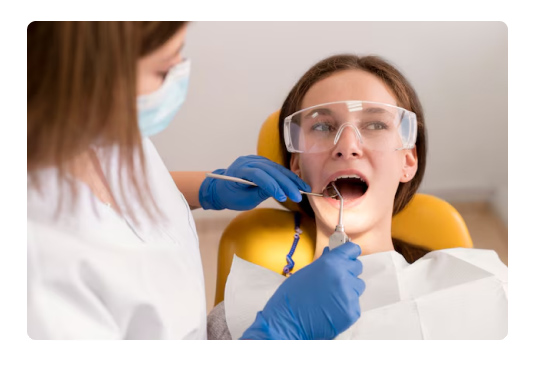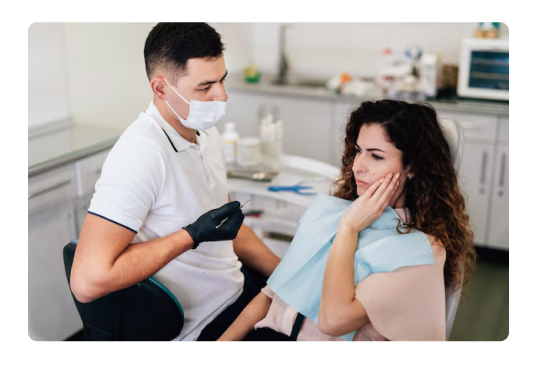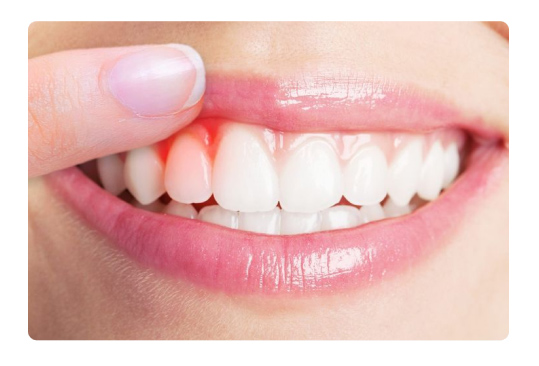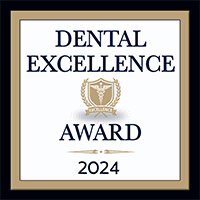


Vero Beach, FL 32960 Map & Directions
- Answering service available 24 hours
- Online chat available 24 hours
- Texting available 7:30AM - 8:00PM
Emergency Dentist in Vero Beach
Our Vero Beach Dental Emergency centers are reachable 24/7. Whether you prefer to call us, text us, or message us via our website, someone will be there to receive or review your message promptly. We understand that dental pain can be very alarming and uncomfortable. We provide emergency dental services for children (5 on up) to adults throughout all of Indian River, St. Lucie, and Brevard Counties.
Your Trusted Partner for Emergency Dental Care
Our schedule includes daily dedicated time slots for emergency and walk-in services to ensure that everyone in our community, whether you're an existing or new patient, receives timely care. We offer hourly emergency appointments, around-the-clock messaging support, and flexible scheduling options before and after our regular hours to assist you promptly in case of a dental emergency.
Key Features of Our Emergency Dental Services
- Hourly availability for emergency/walk-in patients.
- 24/7 access to our answering and message receiving departments.
- Transparent pricing
- In-house Discount Plans for patients without insurance with NO waiting periods.
Common Dental Emergencies
Simply click on your type of dental emergency to see more information on it.
-
“Dr. Perez is amazing! She did my cleaning, whitening & crowns all in one visit! I was so happy I actually cried tears of joy. I waited 25 years for the perfect smile and now I have it.”- Joanne A.
-
“The cleanliness in the office makes me feel safe and secure in these days!”- Tania C.
-
“Dr. Perez is a great dentist. I have been in her care for the past 10+ years. My visits always begin with a friendly welcome. Once in the chair, I receive a complete medical exam using the latest in dental technology.”- Casimir C.
- Persistent Pain: Pain that lasts more than 1-2 days, especially if it interferes with sleep, is a critical indicator.
- Sensitivity to Temperatures: Intense pain in response to hot or cold foods might suggest deeper issues like decay or nerve damage.
- Swelling in the Gum Area: This can often be a sign of infection that needs urgent attention.
- Pain When Chewing: Difficulty or pain during eating can indicate tooth or gum damage.
- Headaches or Jaw Pain: Associated symptoms like headaches or jaw pain can indicate the spread of infection or other dental issues.

Before Your Visit:
- Pain Level: Assess your pain on a scale from 0-10, with 10 being the most severe pain imaginable.
- Duration of Symptoms: Knowing how long you've been experiencing symptoms helps us understand the urgency and potential causes.
- Aggravating Factors: Identify what actions or conditions worsen your toothache, such as eating, applying pressure, or exposure to temperatures.
- Recent Dental History: Any recent dental procedures or noticeable changes can provide valuable context for your diagnosis.
- Give us a call or text at (772) 264-4023 with as much information as possible for us prepare to receive you immediately.
- Request an appointment via our website with as much information as possible for us to prepare to receive you immediately.
During Your Visit:
- Chief Concern: The Doctor and the Team will address your chief concern by collecting all the necessary information.
- X-rays and Examination: Typically, the Doctor will require an x-ray(s) and an exam to diagnose what is happening in the mouth.
- Explanation and Options: The Doctor and the Dental Team will explain to you what is happening, what your options are, and what your cost would be.
- Visible Damage: Even small chips can lead to bigger problems if untreated, and cracks might not always be immediately painful but can worsen over time.
- Pain When Chewing: Pain or discomfort when biting down can indicate a crack that's affecting the tooth's interior.
- Sensitivity to Temperatures: A sudden sensitivity to hot or cold foods and beverages can be a sign of exposed nerves.
- Sharp Edges: Feeling a sharp or rough edge with your tongue can indicate a chipped or broken tooth.
- Swelling: Swelling of the gum around the affected tooth could suggest an underlying issue related to the damage.

Before Your Visit:
- Extent of Damage: Try to assess the size of the chip or crack, and whether any pieces of the tooth have come off. If possible, try to hold on to them for the dental team to inspect.
- Pain Severity: Rate your pain on a scale from 0-10 to help us understand the level of urgency and potential nerve involvement.
- Symptom Onset: Knowing how and when the injury occurred helps us to better diagnose the issue and plan for treatment.
- Previous Dental Work: Inform us of any prior dental work on the affected tooth, as this can influence treatment options.
- Give us a call or text at (772) 264-4023 with as much information as possible for us prepare to receive you immediately.
- Request an appointment via our website with as much information as possible for us to prepare to receive you immediately.
During Your Visit:
- Chief Concern: The Doctor and the Team will address your chief concern by collecting all the necessary information.
- X-rays and Examination: Typically, the Doctor will require an x-ray(s) and an exam to diagnose what is happening in the mouth.
- Explanation and Options: The Doctor and the Dental Team will explain to you what is happening, what your options are, and what your cost would be.
- Immediate Tooth Loss: If a tooth comes out completely, handling it properly is crucial. Avoid touching the root and keep the tooth moist at all times.
- Bleeding: Some bleeding is to be expected. Applying gentle pressure with a clean cloth or gauze can help control it.
- Pain: Pain at the site of the knocked-out tooth is common. Over-the-counter pain relievers can help manage discomfort until you can see a dentist.
- Swelling: Swelling in the gum or cheek area can occur. Applying a cold compress can help reduce swelling and relieve pain.

Before Your Visit:
- Preserve the Tooth: If possible, place the tooth back in its socket without forcing it. If not, keep it in a container of milk or saliva.
- Pain Level: Be ready to describe your pain level on a scale of 0-10, which helps assess the urgency and extent of injury.
- Time of Incident: Time is critical in cases of knocked-out teeth. The sooner you can get to the dentist, the better the chances of saving the tooth.
- Any Associated Injuries: Let us know if there are any other injuries, such as cuts to the lips or gums, which may need treatment. If there are other serious injuries, we recommend storing the tooth as described above and going to the Emergency room first.
- Give us a call or text at (772) 264-4023 with as much information as possible for us prepare to receive you immediately.
- Request an appointment via our website with as much information as possible for us to prepare to receive you immediately.
During Your Visit:
- Chief Concern: The Doctor and the Team will address your chief concern by collecting all the necessary information.
- X-rays and Examination: Typically, the Doctor will require an x-ray(s) and an exam to diagnose what is happening in the mouth.
- Explanation and Options: The Doctor and the Dental Team will explain to you what is happening, what your options are, and what your cost would be.
- Visible Gap or Hole: If a filling is lost, you might notice a gap or hole in your tooth where the filling used to be.
- Loose or Missing Crown: You may find that your crown is loose, has fallen out, or is completely missing, exposing the tooth underneath.
- Sensitivity or Pain: Exposed areas from lost fillings or crowns can lead to increased sensitivity to hot, cold, or sweet foods and beverages, as well as pain during chewing.
- Rough Edges: The tooth may feel rough to the tongue, and there may be discomfort from sharp edges where the filling or crown was previously.

Before Your Visit:
- Save the Crown (if applicable): If your crown has come off, bring it with you to your appointment. In some cases, it may be possible to reattach it.
- Pain and Sensitivity Levels: Be ready to describe any pain or sensitivity you're experiencing, including when it occurs and its severity on a scale of 0-10.
- Duration Since Loss: Note how long it has been since the filling or crown was lost, as this can impact treatment options.
- Previous Dental Work: Information about the lost filling or crown, such as when it was last placed and any issues you've had with it, can be very helpful.
- Give us a call or text at (772) 264-4023 with as much information as possible for us prepare to receive you immediately.
- Request an appointment via our website with as much information as possible for us to prepare to receive you immediately.
During Your Visit:
- Chief Concern: The Doctor and the Team will address your chief concern by collecting all the necessary information.
- X-rays and Examination: Typically, the Doctor will require an x-ray(s) and an exam to diagnose what is happening in the mouth.
- Explanation and Options: The Doctor and the Dental Team will explain to you what is happening, what your options are, and what your cost would be.
- Persistent, Severe Pain: A hallmark sign of an abscess or infection is a throbbing, unbearable pain that doesn't subside, often radiating to the jawbone, neck, or ear.
- Swelling or Redness: Look for visible swelling in the face or gums, which may be accompanied by redness or warmth to the touch.
- Fever: An infection can sometimes lead to a fever as your body attempts to fight off the infection.
- Sensitivity to Hot and Cold: Increased sensitivity to temperatures and pressure is common with abscesses and infections.
- Foul Taste or Smell: A bad taste in the mouth or foul breath can indicate an abscess draining into the mouth.

Before Your Visit:
- Symptom Onset: Note when the pain or discomfort began, as this can help determine the severity and urgency of the infection.
- Pain Level: Describe the intensity of your pain on a scale of 0-10. This helps us understand the extent of the infection and prioritize treatment.
- Previous Symptoms: If you've had similar symptoms or dental issues in the past, let us know, as this can provide valuable context for your current condition.
- Any Home Remedies Tried: Inform us of any measures you've taken to alleviate the symptoms, such as over-the-counter pain relievers or home remedies, and their effectiveness.
- Give us a call or text at (772) 264-4023 with as much information as possible for us prepare to receive you immediately.
- Request an appointment via our website with as much information as possible for us to prepare to receive you immediately.
During Your Visit:
- Chief Concern: The Doctor and the Team will address your chief concern by collecting all the necessary information.
- X-rays and Examination: Typically, the Doctor will require an x-ray(s) and an exam to diagnose what is happening in the mouth.
- Explanation and Options: The Doctor and the Dental Team will explain to you what is happening, what your options are, and what your cost would be.
- Persistent Bleeding: Bleeding that doesn’t stop after a few minutes of pressure, or that recurs frequently, could indicate a more serious condition.
Swelling or Redness: Noticeable swelling, redness, or warmth in the gums or mouth area can be signs of infection or inflammation. - Pain or Discomfort: Continuous or severe pain in the gums or mouth area, especially when eating or brushing, can signal an underlying issue.
Increased Sensitivity: A heightened sensitivity to temperatures or certain foods could suggest damage or infection in the gum tissue. - Bad Breath or Taste: Persistent bad breath or a bad taste in the mouth, not related to food, can be symptomatic of gum disease or an infection.

Before Your Visit:
- Symptom Duration: Note how long you have been experiencing bleeding, pain, or any other symptoms to help assess the urgency and potential causes.
Pain Level: Rate your discomfort on a scale from 0-10, with 10 being the most severe pain or discomfort. - Aggravating and Alleviating Factors: Identify what actions or conditions worsen or improve your symptoms, such as brushing, flossing, or eating certain foods.
- Recent Dental History: Inform us of any recent dental procedures, injuries, or changes in your oral health that might be relevant.
- Contact us at (772) 264-4023 with as much information as possible for us prepare to receive you immediately.
- Schedule an appointment through our website with as much information as possible for us to prepare to receive you immediately.
During Your Visit:
- Chief Concern: The Doctor and the Dental Team will focus on addressing your main concerns by gathering all necessary information.
- Clinical Examination: The Doctor will conduct a thorough examination, possibly including x-rays, to diagnose the cause of your symptoms.
- Treatment Plan and Options: The Doctor and Dental Team will discuss the findings with you, outlining the treatment options and associated costs.
- Visible Cuts or Lacerations: Any clear cuts, tears, or lacerations inside the mouth, on the gums, lips, or tongue, are immediate signs of mouth injuries.
- Bleeding: Persistent or excessive bleeding from any part of the mouth that does not stop with pressure could indicate a significant injury.
- Swelling or Bruising: Swelling or bruising inside the mouth, on the gums, or around the lips can be indicative of trauma or injury.
- Pain or Discomfort: Severe or persistent pain in the mouth or affected area, especially when speaking, eating, or applying pressure.
- Difficulty Speaking or Chewing: Trouble speaking clearly or chewing food without pain can be a sign of serious mouth injuries.
- Loose or Missing Teeth: Injuries resulting in loose or knocked-out teeth require immediate dental attention.

Before Your Visit:
- Duration and Cause of Injury: Note how long ago the injury occurred and the cause, if known, to provide context for the injury.
- Pain Level: Assess the level of pain or discomfort on a scale from 0-10, with 10 being the most severe.
- Symptom Progression: Track any changes in symptoms, such as increased swelling or pain, which can help in assessing the injury's severity. If possible try to apply a cold pack wrapped in a towel to the area (be careful not to put the cold pack directly on skin so as not to cause damage) for 20 minutes at a time.
- Recent Dental History: Share any recent dental procedures or pre-existing conditions that might affect the injury or its treatment.
- Contact us at (772) 264-4023 with as much information as possible for us prepare to receive you immediately.
- Schedule an appointment through our website with as much information as possible for us to prepare to receive you immediately.
During Your Visit:
- Immediate Concerns: The Doctor and Dental Team will prioritize addressing the injury, focusing on pain management and assessing the damage.
- Examination and Possible Imaging: A thorough examination will be conducted, which may include X-rays or other imaging techniques to understand the extent of the injury.
- Treatment Plan: Based on the assessment, the Doctor will discuss the best course of action for treatment, including any immediate procedures needed and follow-up care, along with associated costs.
Why Pelican Dental Care?
Courtesy, Integrity, Respect & Efficiency
-
Panoramic Imaging for full-mouth diagnostics
-
Private consultation spaces
-
Spacious, private operatories
-
Digital X-Rays (faster results)
-
Soothing color palette and natural lighting
-
ADA-compliant and accessible layout
Contact Us Today!
We’re Ready to Help
A member of our team will be in touch shortly to confirm your contact details or address questions you may have.











